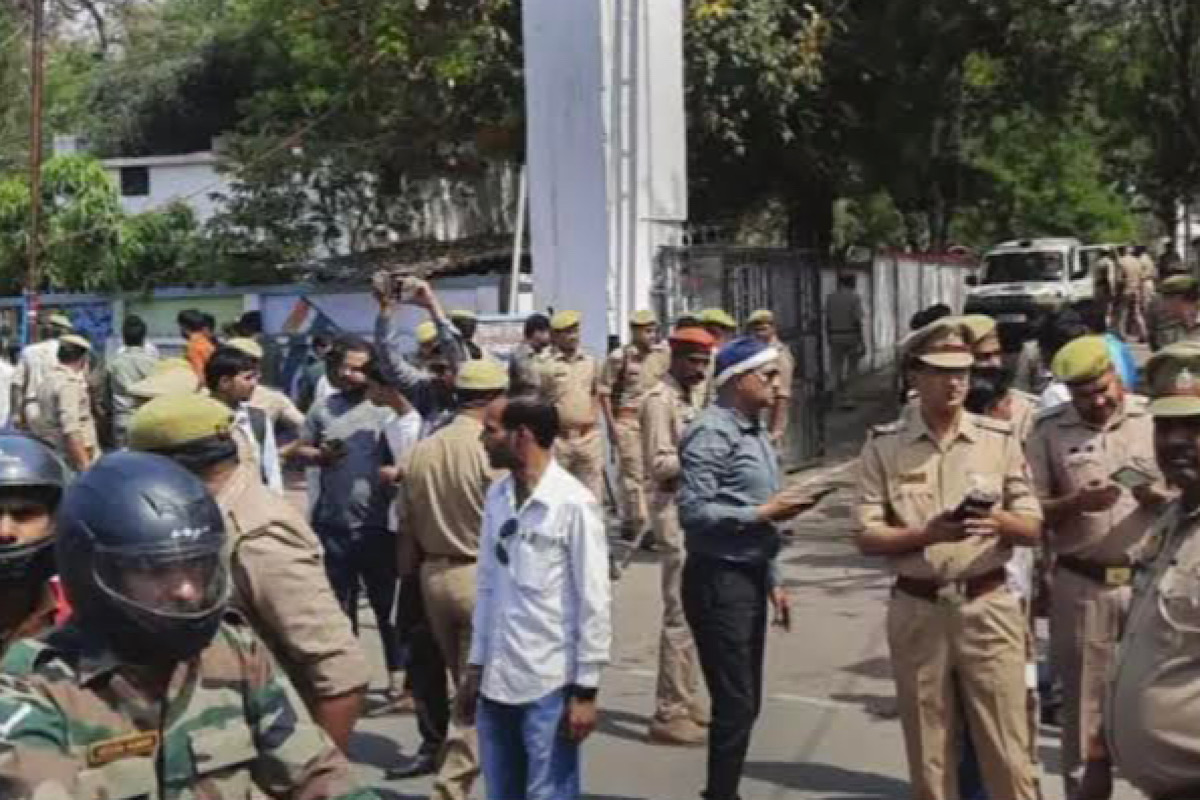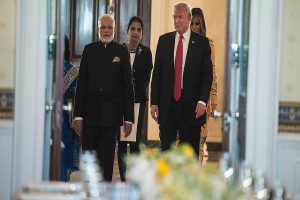Police in Uttar Pradesh is being lauded and lionised for tough action against mafia dons, and eliminating the dreaded ones. The Chief Minister of UP, Yogi Adityanath, is on the crest of the wave and has proclaimed that the dreaded criminals of the underworld will be ground to earth.
He seems to have given carte blanche to the police to stage encounters and the police are faithfully and enthusiastically toeing the line and sometimes overshooting the mark.
Advertisement
When the gangster politician Atiq Ahmed was killed along with one of his associates on April 13, Prasant Kumar, UP’s special DG of crime and law and order declared that this happens to be 1830th encounter since 2017 and is in keeping with the promise of the government to eliminate crime and lawlessness.
But the assassination of Atiq Ahmed, a former lawmaker and a notorious gang lord, has captured national as well as international media attention. He was gunned down by a man posing as a journalist, while he was handcuffed and in police custody along with his brother Asraf.
The incident was broadcast live. His death came a week after the police had shot dead his son Assad, who was the main suspect in the killing of Umesh Paul, a main witness in an important murder case in which Atiq Ahmed was the principal suspect. It is reported that the hooded assailants raised the cry “Jai Sri Ram” before opening deadly fire.
As the victims were in police custody, it was the duty and responsibility of the police to ensure full protection to them and the failure to do so was an egregious lapse that raises other disturbing questions. Admittedly, the incident and the surrounding circumstances give rise to the strong suspicion that the incident was pre-planned and stage-managed.
Atiq had earlier expressed apprehensions before the court that the police were planning to bump him off and this proved to be a self-fulfilling prophesy. The UP government has ordered a judicial inquiry into the matter and it is hoped that the truth will surface. The prevailing public impression is that police encounters are generally illegal and mostly fake.
This, however, is an erroneous impression. Encounters per se are not illegal. The Criminal Procedure Code and the Indian Penal Code, permit use of force in exercise of the right of private defence. Section 46(3) of the CRPC empowers police to use force to the extent of causing death of a person accused of an offence punishable with death or imprisonment for life if such a person resists arrest or intends to evade arrest.
Thus, an encounter per se is neither illegal nor indefensible. Unfortunately many fake encounters also take place.
The police use extra-legal methods to deal with the criminals and become executioners as well as investigators. It must be conceded that there is tremendous pressure on the police from the public as well as political masters to ensure that dreaded criminals and terrorists who threaten peace and order get instant justice and are liquidated through encounters because the chances of their conviction in courts of law are slender.
Mostly cases drag on interminably and the witnesses do not come forward to depose out of fear. A large number of cases were pending against the mafia don Atiq, who from a tongawala had become a billionaire and was merrily cocking a snook at the justice delivery system.
The police are encouraged to do the dirty job of the society because the criminal justice system is not functioning and overhauling the entire system is too big and too daunting a task. The fact of the matter is that encounters are not the problems but the symptoms of a collapsing system of criminal justice as well as the consequence of the public demand for quick solutions to law and order issues that create problems.
Political leaders and chief ministers of states convulsed by terrorism also approve of extra-legal methods and encounters. I still recollect that as a senior officer in charge of the criminal investigation department of the police, I was berated by the chief minister of the state for not “mastering all the tricks of the police tradecraft”.
However, the hard fact to be borne in mind is that encounters are counter-productive and generate a contempt for the law within the police. It is objectionable, because it is arbitrary as a process, and random in its effect.
The National Police Commission in its (Fifth Report) strongly discouraged fake encounters as this is not a remedy for any situation The answer is to strengthen the law and legal processes.
There are instances where in the name of encounters, the criminals used police to bump off their rivals in intra-gang warfare violating the rule of law. This has the effect of scapegoating the police. The police leaders have to remember that when the police take recourse to extra-legal methods to make up for the deficiencies of law and the legal procedures, they are trying to remedy the inadequacies they did not create.
By resorting to extra-legal methods and exceeding their mandate, they not only take responsibility for the crime on themselves but also deflect attention from the negligence of others. As a result, when serious violations of law come to light, outside interventions take place and enquiry commissions are set up.
The police organisations in order to fend off such interventions develop a “a bunker mentality” and become less willing to be transparent and open. Police scholar David Bayley has aptly said that illegality in service of public safety makes policing a furtive activity and undermines pride which is the basis of job satisfaction.
Thus, it is the moral responsibility of the police leaders to change the mindset of their subordinates by constantly emphasising that violating the rule of law is dishonest and immoral law enforcement. Extra-legal methods are ultimately counter-productive.
Unfortunately, there is supervisory cowardice to firmly pull up trigger-happy errant officers and this is compounded by systemic arrogance among many police officers which generates the belief that they have the power and influence to punish anyone posing, according to their perception, a threat to public order and safety. The cardinal fact to be always borne in mind by police leaders is that wrong means ultimately vitiate the end.
The responsibility of the police is to maintain law and order, but order through law. Otherwise, criminals can always maintain better order than the police.
(The writer is Senior Fellow Institute of Social Sciences, a former Director General of the National Human Rights Commission and former Director, National Police Academy)











